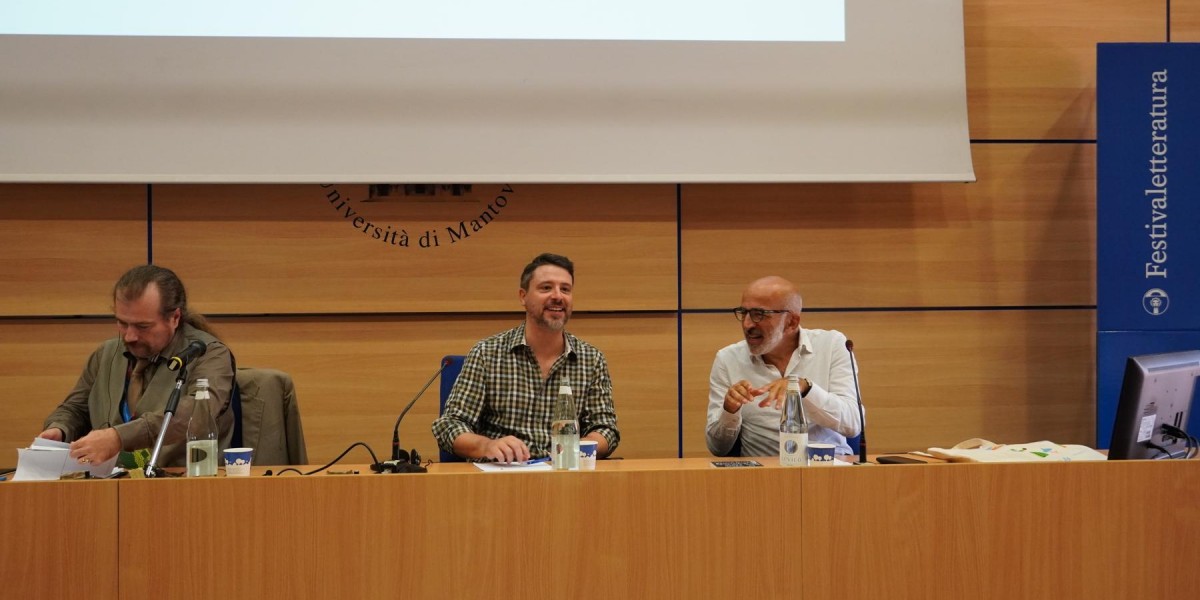
Gavin Mueller on why there’s nothing old-fashioned about raging against the machine
The subtitle of Gavin Mueller’s latest work sums up his very well-received lecture at Festivaletteratura: The Luddites are right about why you hate your job. “Luddite”, he argues, has become a moniker for obstinate technophobes, but it’s a misnomer. Yes, the original Luddites raged against the machines, quite literally, protesting industrialisation by destroying the new textile technologies introduced in 19th century England. Fuelling these tactics, however, was a social movement reflecting on the threats that automation imposed on their trade, their way of life, and their community.
The legacy of Luddites flips the table, first and foremost, on automation, embraced today by tech entrepreneurs and other “accelerationists” alike. In the workplace, industrial or post-industrial, machines do not simply replace the human with the artificial. Machines redistribute labour. To illustrate this difference, Mueller sways the audience by asking what happened to the grocery store, a “neat parable” of automation. We used to have someone paid to take note of what we got, take our money, give us change, while someone else, also paid (the audacity!), would transfer our items from the counter to the bag. Now, we interact with a machine, we scan our goods and pay, we bag our items, all without pay; and someone is now paid (little) to swing by when the machines inevitably crash. This kind of redistribution degrades everyone involved, say both the old and new Luddite.
Isn’t it just a taste for the old-fashioned, some primordial fear of the future? After all, machines could emancipate us, leaving us more time to enjoy ourselves thanks to a shortened workday. Perhaps in a job that requires refined, human-only skills, rather than menial repetition. The second lesson of the Luddites is that technology can be not just degrading, but deskilling. Luddites were concerned that the quality of their textiles would deteriorate, out of their hands and into the stylised teeth of the new machines. More subtly, they recognised that technologies could be operated without fully understanding their workings, all their cogs and wheels. The new textile machines of today are in our phone, apps whose workings most of us cannot be fully aware of.
We lack the skills and, in technology’s masterstroke, we may not know how to react. Tech is too pervasive in our everyday life, blurring the contours of what we might fight against, even if we want to. Tech companies seem too big to tackle and can stifle opposition by organised labour. But a few cracks give Gavin hope. His contemporary Luddite has a three-part plan. Decelerate, make automation a political issue, to be discussed, regulated, countered. Reskill, learn the ins and out of technology; this knowledge is power. And find a way for de-growth, find what is wasteful right now, what can get things under control. If technological progress is not neutral, a new spectre must be haunting it. The spectre of Luddism.



